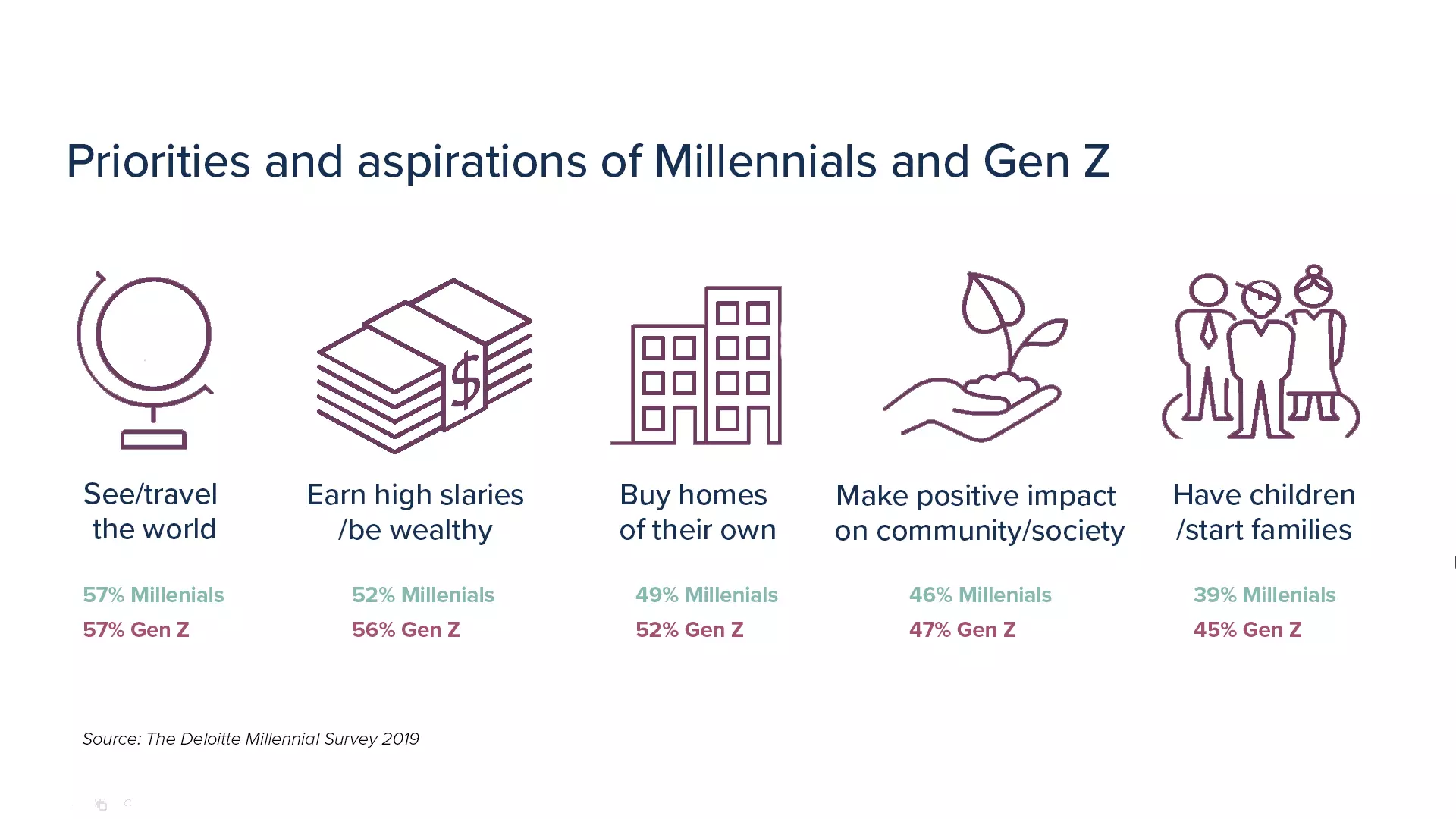Cori Petersen, Group Executive Vice President, Chief Human Resource and HSE Officer at FLSmidth
The career aspirations of the new generation of skilled employees and emerging talents have shifted remarkably over the last decade or so. Where older generations wanted the stability of a job – any job – some predictions show that younger generations are seeking something different in their work life.
According to the 2019 Deloitte Global Millennial Survey, for instance, a top priority for millennials is not career development but to travel and see the world. They are also more demanding of employers, believing business is “underdelivering on improving society and improving and protecting the environment". In another example, Forbes reported in a survey of almost 350 U.S. millennials that 68% wanted to make a positive difference in the world and 81% stated they wanted to work for a company with "a genuine purpose".
When looking for a suitable industry in which to make a positive difference, mining may not be the first to come to mind. In short, the perception of the mining industry’s environmental record in the public consciousness has room for improvement. Headline-making environmental disasters such as dam failures, child labour issues in some parts of the world, economic and environmental flashpoints with local communities, mining waste and pollution issues and landscape destruction do nothing to change this perception. It is not a pretty picture – and the next generation of woke, environmentally aware, skilled employees are paying attention.
While it is true that mining processes and operations have a way to go in order to reach the United Nations Sustainable Development Goals, the mining industry is 100% necessary when it comes to meeting the infrastructural demands of a more sustainable, green society.
That mining is a necessity when it comes to supplying minerals needed for smart phones, sustainability-enhancing technology and computers and green energy solutions such as wind farms and solar panels, is a fact too easily buried. This narrative is exactly how we attract the next generation of talent: as an industry we offer the opportunity to really make a difference, to make a significant impact, to help us drive change on a large scale. We are a key enabling industry for the future green society.
Surprisingly for those unfamiliar with the industry, mining can fulfil many of the new generation’s criteria, such as travelling and making a difference to society – and not just for the traditional talent base of engineers and operators. Social scientists, fiscal policy experts, IT professionals, data scientists, geologists, software developers and sustainability compliance experts are now needed by the mining industry to meet the requirements of an increasingly digital and sustainable industry.

Sadly, however, given the poor general perception of our industry, very few science, technology, engineering and mathematics (STEM) talent will immediately look to mining for a career.
That is, of course, unless we manage to change the narrative around our industry and create a strong proposal for top graduates and talents. A big part of that proposal at FLSmidth is our MissionZero ambition, which aims to develop digital and innovative solutions that enable customers to reach zero emissions by 2030, with a specific focus on water management. MissionZero goes beyond what is feasible today and requires a paradigm shift in how industry players collaborate and innovate.
This ambition is ideal for those who are seeking to make a significant environmental impact on a global level. An increasing global population, a growing middle class, urbanisation and sustainability are fuelling demand not only for electronic devices but also for new technological solutions, such as renewable energy.
These all depend on an ever-increasing amount of minerals. Extracting these minerals from the ground is the first step in a long chain of events making a more sustainable life possible. So, if the next generation want to make the most of their skills to improve global living standards while decreasing environmental impact, transitioning the mining industry to increasingly sustainable processes could not be more ideal.